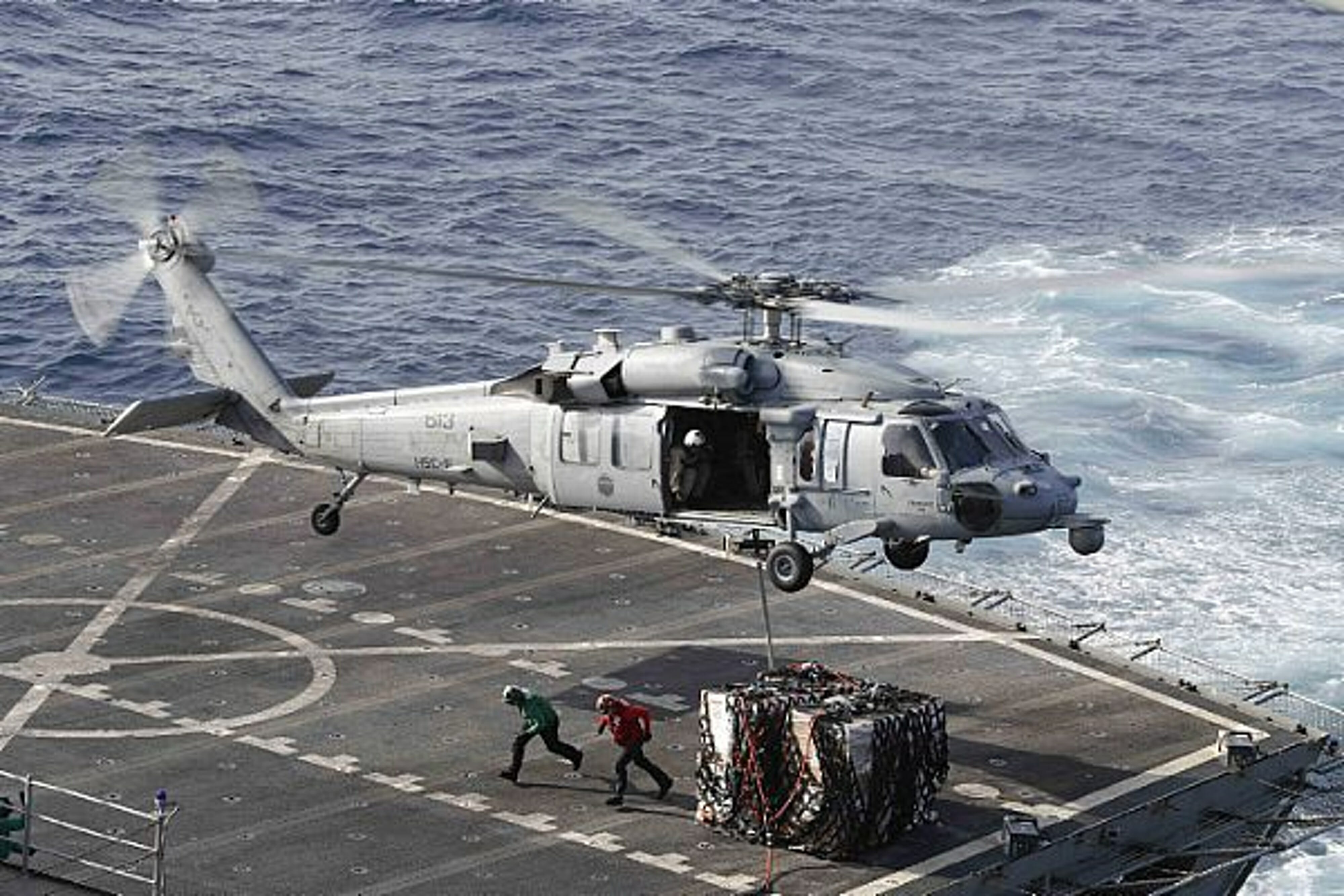
Senior German diplomat in Tehran for nuclear deal talks
BERLIN (AP) — A senior German diplomat headed Thursday to Tehran to press Iran to continue to respect the landmark nuclear deal, despite the unilateral withdrawal of the U.S. and increasing pressure from Washington.
Tensions have soared in the Mideast recently as the White House earlier this month sent an aircraft carrier and B-52 bombers to the region over a still-unexplained threat it perceived from Iran.
Germany’s Foreign Ministry sent its political director, Jens Ploetner, to Iran to meet with Deputy Foreign Minister Abbas Araghchi to try to salvage the nuclear deal signed in 2015 in Vienna. The accord has steadily unraveled since the Trump administration pulled America out of the deal, re-imposed and escalated U.S. sanctions on Tehran last year.
Iran’s official IRNA news agency reported that Arghchi demanded that European signatories follow through on their commitments under the deal. According to the report, Ploetner said the European side will continue to work to meet Iran’s demands and save the deal. The report did not elaborate.
The German envoy’s visit follows Iran’s declaration earlier this month that the remaining signatories to the deal — Germany, France, Britain, China and Russia — have two months to develop a plan to shield Iran from American sanctions.
“The situation in the Persian Gulf and the region, and the situation surrounding the Vienna nuclear agreement, is extremely serious,” the German Foreign Ministry said in an e-mail to The Associated Press. “There is a real risk of escalation — including due to misunderstandings or an incident. In this situation, dialogue is very important.”
With Iran’s 60-day deadline, the ministry said there is still a “window for diplomacy to persuade Iran to continue its full compliance” and said Germany remains in close contact with the other nations that have been struggling to keep the deal alive.
The accord, intended to keep Iran from obtaining a nuclear weapon, promised economic incentives in exchange for restrictions on Tehran’s nuclear activities. Despite efforts so far by the others to keep the deal from collapsing, Iran’s economy has been struggling and its currency has plummeted after the re-imposition of U.S. sanctions.
Iran continued abiding by the stipulations of the deal, according to a February report by the International Atomic Energy Agency, though it expressed increasing frustration with the inability of the Europeans to provide economic relief. A new IAEA report is due out soon.
Then on Monday, Iran announced it had quadrupled its production capacity of low-enriched uranium. Iranian officials made a point to stress that the uranium would be enriched only to the 3.67% limit set under the nuclear deal, making it usable for a power plant but far below what’s needed for an atomic weapon.
But by increasing production, Iran will likely soon exceed the stockpile limitations set by the nuclear accord, which would escalate the situation further.
Several incidents have added to the crisis, including the sabotage of the oil tankers off the coast of the United Arab Emirates, as well as a rocket that landed near the U.S. Embassy in Baghdad. The U.S. has blamed Iran for both incidents without publicly offering evidence. America also has evacuated nonessential diplomatic staff from Iraq amid the tensions.
Saudi Arabia said Thursday Yemen’s Houthi rebels again targeted an airport in Najran near its southern border with a bomb-carrying drone. The Saudi military said it intercepted the drone, while the Houthis said it struck a Patriot missile battery at the airport. The Houthis have claimed three times in recent days to have targeted the airport, which also hosts a military base. It comes after the Houthis last week targeted a Saudi oil pipeline in a coordinated drone attack.
The Pentagon was to present plans to the White House on Thursday to send up to 10,000 more American troops to the Middle East, to beef up defenses against potential Iranian threats, U.S. officials said. Iran has watched warily as the USS Abraham Lincoln heads toward the Strait of Hormuz and B-52 bombers began flying missions in the region.
Iran’s armed forces chief of staff, Gen. Mohammad Hossein Bagheri, said Thursday the military will remain watchful about “deceptions by the U.S. government and its adventurous” president.
“With the finger on the trigger, Iran is ready to respond to any invader strongly and with unbelievable speed,” Bagheri said in a statement.
Iran’s Foreign Minister Mohammad Javad Zarif was expected to arrive later Thursday in Islamabad as Pakistan seeks to calm regional tensions. He was to hold talks with Pakistani officials on Friday.
“We believe the situation in the region is serious and needs to be addressed through dialogue by all parties,” Pakistan’s foreign ministry said in a statement. “We expect all sides to show restraint, as any miscalculated move, can transmute into a large-scale conflict.”
___
Associated Press writers Nasser Karimi in Tehran, Iran, and Kathy Gannon in Islamabad contributed to this report.
The Western Journal has not reviewed this Associated Press story prior to publication. Therefore, it may contain editorial bias or may in some other way not meet our normal editorial standards. It is provided to our readers as a service from The Western Journal.
Truth and Accuracy
We are committed to truth and accuracy in all of our journalism. Read our editorial standards.
Advertise with The Western Journal and reach millions of highly engaged readers, while supporting our work. Advertise Today.












